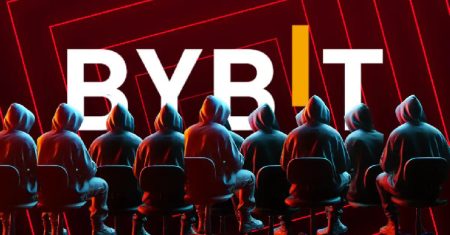A Groundbreaking Proposal: 21Shares’ Ethereum Staking ETF
The U.S. Securities and Exchange Commission (SEC) has taken a significant step toward embracing cryptocurrency innovation by acknowledging a filing from Cboe BZX Exchange, submitted on behalf of 21Shares. This proposal seeks approval for the 21Shares Core Ethereum ETF to stake Ethereum (ETH), marking a potential milestone in the integration of digital assets into traditional financial markets. If approved, this ETF would become the first in the United States to offer staking, a feature that could attract both individual and institutional investors looking to maximize their returns in the digital asset space.
Staking, a process tied to proof-of-stake (PoS) blockchains, allows holders of ETH to earn rewards by validating transactions on the network. By incorporating staking into the ETF, 21Shares aims to generate additional profits for investors. Unlike other staking models, such as staking-as-a-service or delegated staking, this ETF would hold the staked ether directly within the trust, aligning with regulatory expectations and avoiding the pitfalls of previous attempts that faced opposition from the SEC. This approach ensures clarity and compliance, which have been critical hurdles for similar proposals in the past.
Regulatory History and the SEC’s Crypto Stance
The SEC has historically taken a cautious approach to cryptocurrencies, particularly when it comes to proof-of-stake assets. Under former Chair Gary Gensler, the agency classified staking-related activities as securities, effectively subjecting them to the same stringent regulations as traditional financial instruments. This stance led many ETF issuers to omit staking from their proposals, fearing regulatory pushback. However, the landscape appears to be shifting under the current administration.
In recent months, the SEC has adopted a more crypto-friendly stance, reflecting a growing recognition of digital assets as a viable part of the financial ecosystem. The agency has established a dedicated crypto task force and is reevaluating how certain tokens are classified under securities laws. For ETF issuers like 21Shares, these shifts present an opportunity to revisit staking as a value-added feature. A clearer legal framework for staking could also pave the way for broader institutional adoption, as firms seek to capitalize on the potential for higher yields in the digital asset market.
Market Implications and Institutional Demand
The timing of 21Shares’ proposal coincides with a notable increase in institutional interest in Ethereum ETFs. According to recent 13F filings, ownership of ETH ETFs surged from 4.8% to 14.5% in Q4 2024, while Bitcoin ETF ownership declined slightly from 22.3% to 21.5%. This shift underscores a growing appetite for Ethereum-based investment vehicles, driven in part by Ethereum’s transition to a proof-of-stake consensus mechanism and the potential for staking rewards.
If approved, the 21Shares Core Ethereum ETF with staking capabilities could serve as a catalyst for further growth in the Ethereum ecosystem. Many analysts believe that such an ETF would not only attract more institutional capital but also boost the price of ETH by increasing demand and reducing circulating supply. In turn, this could create a positive feedback loop, driving further interest and investment in Ethereum-based products.
Broader Adoption and Regulatory Signals
The SEC’s acknowledgment of 21Shares’ proposal is part of a larger trend of increasing regulatory openness to cryptocurrency-based ETFs. Recent developments, such as the SEC’s recognition of registration filings from Bitwise, 21Shares, and Grayscale for Ripple (XRP) spot ETFs, have fueled speculation about a wave of approvals for crypto-based financial products. These moves suggest that the agency is gradually warming to the idea of integrating digital assets into mainstream financial markets.
A favorable decision on the 21Shares Ethereum staking ETF could have far-reaching implications, signaling to the market that the SEC is willing to support innovative investment vehicles tied to cryptocurrencies. This, in turn, could accelerate the adoption of digital assets by institutional investors, who are increasingly seeking exposure to the crypto market through regulated and familiar investment structures.
Looking Ahead: The Future of Digital Asset ETFs
The next few months will be critical in determining the trajectory of cryptocurrency ETFs in the United States. With the SEC’s growing openness to digital assets and the increasing demand for Ethereum-based investment products, the stage is set for a potential breakthrough. If approved, the 21Shares Core Ethereum ETF with staking capabilities would not only















